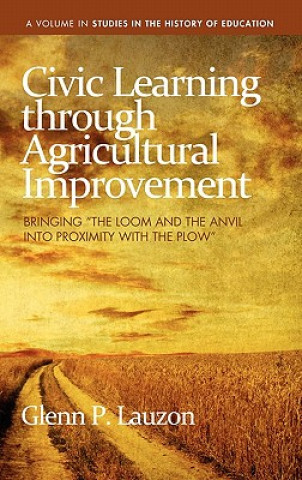
Kód: 08811329
Civic Learning Through Agricultural Improvement
Autor Glenn P. Lauzon
A volume in Studies in the History of Education Series Editor: Karen L. Riley, Auburn University at Montgomery How do people use education to respond to change? How do people learn what is expected of "go ... celý popis
- Jazyk:
 Angličtina
Angličtina - Vazba: Pevná
- Počet stran: 260
Nakladatelství: Information Age Publishing, 2010
- Více informací o knize

Mohlo by se vám také líbit
-

Laura, a Tale. in Verse.
532 Kč -

New Knebworth Edition.
815 Kč -

Space, Science & Other Things - Elementary (K-8) Interactive Space Show
792 Kč -

Evangeline Drowning
474 Kč -

Giuseppe's Recipes
620 Kč -

Golf y Su P... Madre!
445 Kč
Dárkový poukaz: Radost zaručena
- Darujte poukaz v libovolné hodnotě a my se postaráme o zbytek.
- Poukaz se vztahuje na celou naši nabídku.
- Elektronický poukaz vytisknete z e-mailu a můžete ihned darovat.
- Platnost poukazu je 12 měsíců od data vystavení.
Více informací o knize Civic Learning Through Agricultural Improvement
Nákupem získáte 318 bodů
 Anotace knihy
Anotace knihy
A volume in Studies in the History of Education Series Editor: Karen L. Riley, Auburn University at Montgomery How do people use education to respond to change? How do people learn what is expected of "good citizens" in their communities? These questions have long concerned educational historians, civic educators, and social scientists. In recent years, they have captured national attention through high-profile education reform proposals and civic initiatives. The historian who reviews the relevant literature, however, will discover something odd: most of it focuses on schooling, despite the fact that, prior to the middle of the twentieth century, formal schooling played only a small (but significant) part in most people's lives. What other educational forces and institutions bring civic ideals to bear upon minds and hearts? This question is rarely raised. At issue is a conceptual problem: we, today, tend to equate "education" with "schooling." Do county fairs and farmers' associations have anything to do with civic education? Drawing insights from debates at the time of the "founding" of the history of education as a branch of modern scholarship, this author asserts that they do. Using the life of county fairs, farmers' associations, and farmers' institutes as its central thread, this book explores how prominent town-dwellers and leading farmers tried to use agricultural improvement to grow towns and to shape civic sensibilities in the rural Midwest. Promoting economic development was the foremost concern, but the efforts taught farmers much about their "place" as "good citizens" of industrializing communities. As such, this study yields insights into how rural people of the nineteenth century came to accept the ideal that "town" and "country" were interdependent parts of the same community. In doing so, it reminds educators and historians that much education and learning - particularly of the civic sort - takes place beyond the schoolhouse.
 Parametry knihy
Parametry knihy
Zařazení knihy Knihy v angličtině Society & social sciences Sociology & anthropology Sociology
3177 Kč
- Plný název: Civic Learning Through Agricultural Improvement
- Podnázev: Bringing "the Loom and the Anvil into Proximity with the Plow" (HC)
- Autor: Glenn P. Lauzon
- Jazyk:
 Angličtina
Angličtina - Vazba: Pevná
- Počet stran: 260
- EAN: 9781617351488
- ISBN: 9781617351488
- ID: 08811329
- Nakladatelství: Information Age Publishing
- Hmotnost: 542 g
- Rozměry: 234 × 156 × 15 mm
- Datum vydání: 23. November 2010
Oblíbené z jiného soudku
-

Birth Of A Mother
551 Kč -

Fair Play Deck
479 Kč -

Tragedy and Hope
1121 Kč -

Sex at Dawn
368 Kč -
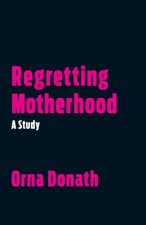
Regretting Motherhood
348 Kč -
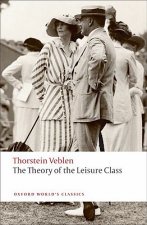
Theory of the Leisure Class
303 Kč -

Social Intelligence
358 Kč -

Eroticism
303 Kč -

Surrendered Wife
276 Kč -

NINETY PERCENT OF EVERYTHING
420 Kč -

Gifts of Imperfection: 10th Anniversary Edition
580 Kč -

Bushido the Soul of Japan
288 Kč -

Tragedy and Hope
1430 Kč -

World-Systems Analysis
512 Kč -

Cruel Optimism
760 Kč -

Critique of Everyday Life
1037 Kč -
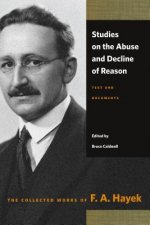
Studies on the Abuse & Decline of Reason
439 Kč -

Post-Adoption Blues
439 Kč -

Blueprint for Revolution
303 Kč -

Wanderlust
395 Kč -

Dying for Ideas
334 Kč -
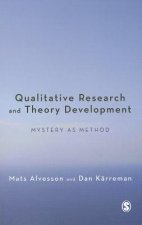
Qualitative Research and Theory Development
1133 Kč -

Social Change in a Peripheral Society
799 Kč -

Treatise on the Family
1744 Kč -

From Benito Mussolini to Hugo Chavez
1113 Kč -

Being Mortal
462 Kč -

Return to Meaning
1392 Kč -

Marriageology
603 Kč -

Intimate Communion
321 Kč -

Cartoon Guide to Statistics
468 Kč -

Book of Tea
249 Kč -

More Than Two
605 Kč -

Small Is Beautiful
276 Kč -

World of Sex
170 Kč -

Being Mortal
296 Kč -

True Believer
329 Kč -

Marriage, a History
464 Kč -

Why Love Hurts - A Sociological Explanation
438 Kč -

Past Mortems
249 Kč -

Population Control
357 Kč -
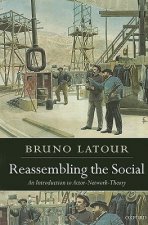
Reassembling the Social
1120 Kč -

Class Ceiling
324 Kč -

Chrysanthemum and the Sword
439 Kč -

Family and Civilization
538 Kč -

Braving the Wilderness
234 Kč -

Intercourse
383 Kč -
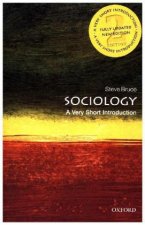
Sociology: A Very Short Introduction
249 Kč -

Death and the Afterlife
453 Kč -
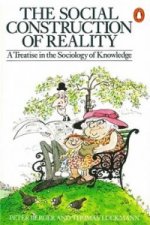
Social Construction of Reality
303 Kč
Osobní odběr Praha, Brno a 12903 dalších
Copyright ©2008-24 nejlevnejsi-knihy.cz Všechna práva vyhrazenaSoukromíCookies



 Vrácení do měsíce
Vrácení do měsíce 571 999 099 (8-15.30h)
571 999 099 (8-15.30h)